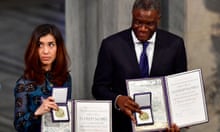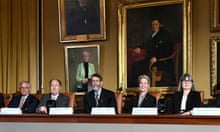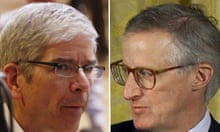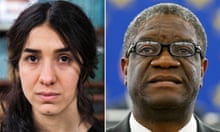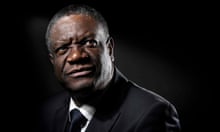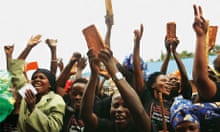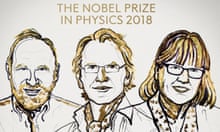When the Royal Swedish Academy of Sciences in Stockholm announced the Nobel prize for physics this week, anyone wanting to find out more about one of the three winners would have drawn a blank on Wikipedia.
Until around an hour and a half after the award was announced on Tuesday, the Canadian physicist Donna Strickland was not deemed significant enough to merit her own page on the user-edited encyclopedia.
The oversight has once again highlighted the marginalization of women in science and gender bias at Wikipedia.
Strickland is an associate professor of physics and astronomy at the University of Waterloo and former president of the Optical Society, but when a Wikipedia user attempted to create a profile for her in March, the page was denied by a moderator.
“This submission’s references do not show that the subject qualifies for a Wikipedia article,” said the moderator.
Soon after Tuesday’s announcement, however, the Wikipedia community scrambled to build up a profile, completing sections on her research, biography and – most critically – her awards.
But the belated recognition contrasted with that afforded to Strickland’s colleague Gérard Mourou – with whom she shared the award – who had a Wikipedia page in 2005.
Strickland shared the award with Mourou and Arthur Ashkin for their work on pulse lasers – widely viewed as a precursor to precise machining and laser surgery.
She is the first woman to win the award since it went to Maria Goeppert-Mayer in 1963. Marie Curie was the first to win in 1903.
Strickland appeared sanguine over the slowness to recognize the achievements of female scientists, telling the Canadian Press: “We should never lose the fact that we are moving forward. We are always marching forward.”
The Nobel committee is increasingly aware of its poor track record with female scientists: last year all prize winners were men. “We are disappointed looking at the larger perspective that more women have not been awarded,” Göran Hansson, the vice-chair of the board of directors of the Nobel Foundation, said at the time. “I suspect there are many more women who are deserving to be considered for the prize.”
Strickland’s win has reinvigorated the discussion over the dearth of female laureates in the sciences. Over the 117 years of the award, 50 women have won from a possible 923 prizes. Strickland has expressed hope that her win might mark a turning point for younger female scientists looking to become involved in research.
“If somebody else thinks something that you don’t believe in, just think they’re wrong and you’re right and keep going,” Strickland told a young scientist at the press conference following the announcement of her win. ”That’s pretty much the way I always think.”
The episode also cast light on Wikipedia’s own gender bias: just 16% of the site’s volunteer editors are female and only 17% of entries dedicated to notable people are for women.

